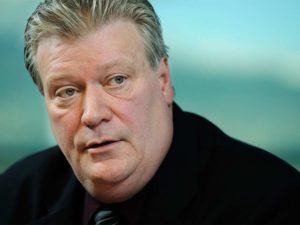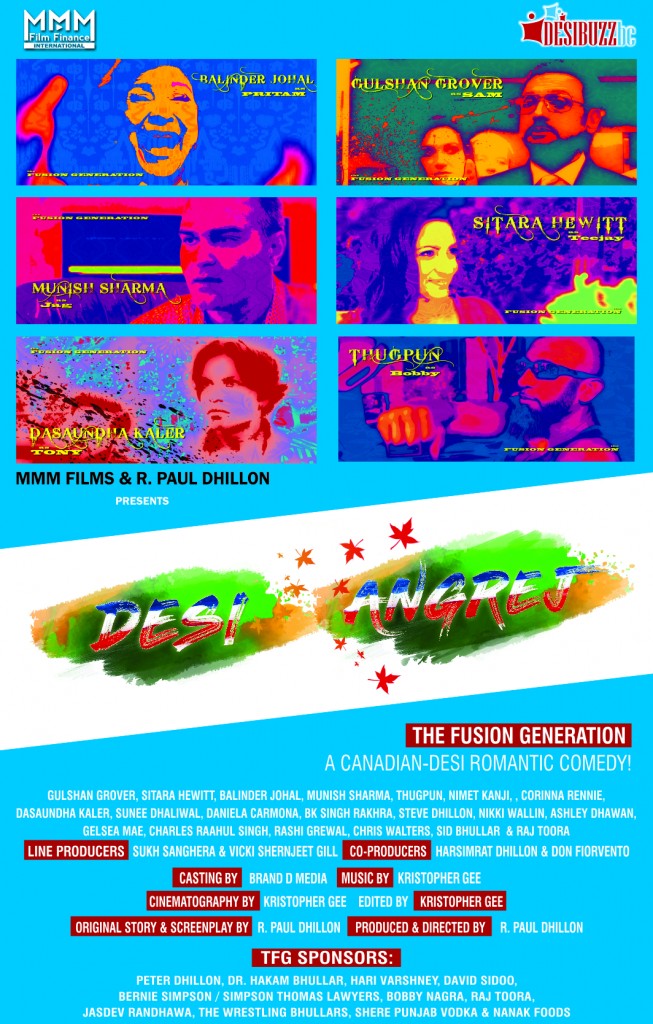DESIBUZZCanada
Events Listings
Dummy Post

International Day Of Yoga To Be Virtually Celebrated Saturday At 4pm

CANCELLED: Coronavirus Fears Kills Surrey’s Vaisakhi Day Parade

ADVERTISE WITH US: DESIBUZZCanada Is The Most Read South Asian Publication Online

SURREY LIBRARIES: Get Technology Help At Surrey Libraries

WALLY OPPAL: Surrey Police Transition Update On Feb. 26

GONE ARE THE DAYS - Feature Documentary Trailer

Technology Help At Surrey Libraries

Birding Walks

Plea Poetry/short Story : Youth Contest

International Folk Dancing Drop-in Sessions
Ndp Going After New Bc Liberal Leader Andrew Wilkinson Over Party’s Failure To Stop Dirty Money
- July 16, 2018

POSTED BY: DESIBUZZCANADA JULY 16, 2018


The fallout from the German report on money laundering in BC Casinos is hitting the new BC Liberal leader Andrew Wilkinson hard and he is further being pummelled by the NDP on his party's failure to stop dirty money in B.C. casinos. It's not just NDP that's taking aim at Wilkinson and the BC Liberals, others involved in policing or investigating dirty money at BC Casinos are also speaking out. One example of piles of dirty money being cleaned included a pile of $20 bills – some $600,000 — that was stacked higher than the casino cashier, according to Joe Schalk, who recalled this surreal scene from his time as the senior director of investigations at B.C.’s gambling regulator, GPEB. In December 2014, he and his colleague were brought into an office, dismissed without cause, and walked out of the building. Schalk says it’s clear a message was being sent. “I think the noise that was being made needed to be quieted,” he said.
By R. Paul Dhillon
With News Files
VANCOUVER – The fallout from the German report on money laundering in BC Casinos is hitting the new BC Liberal leader Andrew Wilkinson hard and he is further being pummelled by the NDP on his party's failure to stop dirty money in B.C. casinos.
The NDP also went after Rich Coleman, who is mulling a run for Surrey mayor, after Coleman's's interview with CKNW raised more questions about the B.C. Liberals' attempt to deny responsibility for being asleep at the switch on their absolute careless response to millions of dollars of illicit cash that was laundered in BC.
"It's good to finally see Rich Coleman speak about this issue, rather than hiding. However, the more excuses he uses, the more questions are raised about why the B.C. Liberals will not accept responsibility for their failure to stop dirty money," said Ravi Kahlon, New Democrat MLA for Delta North.
The German report also describes an effort by the then-gaming minister, Rich Coleman, to crack down on an RCMP officer who spoke out against the huge amounts of cash in 2011.
“The Minister responsible for gaming objected to Insp. Baxter’s comments and told the media that… the position expressed by Baxter was wrong,” the report says.
For a number of years, it was the last time any RCMP officer would comment publicly on the issue of casinos, the report says.
Rich Coleman’s staff said he was unavailable for comment, but in interviews with other media, he has insisted he did everything he could to crack down on casino money laundering.
 When asked about the B.C. Liberals taking big money donations from the casinos at the centre of the scandal, Coleman responded: "That's just not true. That's just not true." (CKNW, July 5th)
When asked about the B.C. Liberals taking big money donations from the casinos at the centre of the scandal, Coleman responded: "That's just not true. That's just not true." (CKNW, July 5th)
However, Elections B.C. records show the B.C. Liberals took $220,302 from Gateway Casinos and $127,274 from Great Canadian Gaming Corp. between 2015 and 2017.
Rich Coleman himself cashed a $390 cheque from Gateway Casinos during the 2017 election.
B.C. Liberal Leadership hopefuls, including Andrew Wilkinson, took in a total of $25,000 in big money donations from Gateway Casinos.
They haven't learned. When asked what he would change now that the extent of dirty money is public, Coleman said:
"Will Andrew Wilkinson and the B.C. Liberals finally accept responsibility for allowing the spread of dirty money to go unchecked," NDP asked in a press release.
“It’s time for Mr. Wilkinson to stop shamelessly deflecting blame by blaming police. He should admit his government made a terrible mistake that allowed money laundering to grow completely out of control,” Kahlon said.
NDP said Wilkinson blamed the police for telling his government to dismantle the Integrated Illegal Gaming Enforcement Team.
In reality, the previous BC Liberal government chose to ignore advice from the RCMP and allowed the spread of dirty money to spiral out of control, said Kahlon.
It's not just NDP that's taking aim at Wilkinson and the BC Liberals, others involved in policing or investigating dirty money at BC Casinos are also speaking out.
One example of piles of dirty money being cleaned included a pile of $20 bills – some $600,000 — that was stacked higher than the casino cashier, according to Joe Schalk, who recalled this surreal scene from his time as the senior director of investigations at B.C.’s gambling regulator, GPEB.
“She disappeared behind these bills to the point where all you could see was her eyes and forehead. It was a huge mountain of cash,” Schalk told CTV News
And reports of suspicious cash transactions were mounting too – over seven years ballooning more than 20 times, when Schalk’s team was estimating it would crest over $200 million in a single year.
 Schalk and his team were tasked with tracking this likely dirty money. They believed it was an international scheme. The gamblers, they believed, could be dupes, but the source of the money was likely criminal operations with reach around the globe.
Schalk and his team were tasked with tracking this likely dirty money. They believed it was an international scheme. The gamblers, they believed, could be dupes, but the source of the money was likely criminal operations with reach around the globe.
“The gambler receives the cash money from loan sharks, who receive the money from what I believe is criminal sources. The gambler loses the cash money gambling at the casino and ultimately repays his debt in the foreign jurisdiction,” wrote Schalk’s colleague in 2013.
That assessment was “precisely correct,” according to the recent report by Dr. Peter German, which examined money laundering in B.C. casinos, exploring its links to the drug trade, criminal gangs and even Lower Mainland real estate.
But at the time, Schalk said no one seemed to be listening, even as the reports of suspicious money piled up.
“Exponentially it kept growing. Huge numbers. It became more frustrating because less and less people were listening. And nobody was doing anything about it,” he said.
In December 2014, he and his colleague were brought into an office, dismissed without cause, and walked out of the building. Schalk says it’s clear a message was being sent.
“I think the noise that was being made needed to be quieted,” he said.
The German report also concluded that the firings were disruptive to GPEB’s attempts to stop money laundering.
“Both had been with GPEB for over a decade, after long and distinguished policing careers. Three other employees, including the person leading the money laundering strategy, were assigned to other departments,” German wrote.
“Although the stated aims of the organizational review and the subsequent reorganization of GPEB were unrelated to the anti-money laundering strategy, the effect was clear,” German wrote.
Schalk wasn’t the only one who worried that their dismissal was related to the fact they wouldn’t keep quiet about suspicious goings-on at B.C. casinos.
Michaela Wyatt, who says she worked security for two months at Burnaby’s Grand Villa Casino around 2009, said she saw what she believed were eight different money laundering incidents on the casino floor.
“I watched hundreds of thousands of dollars go from a woman’s purse to gamblers. They would come back with these little tickets,” she said, referring to receipts that a slot machine will give a gambler for a payout.
The receipt is significant because the gambler can put cash into a machine, play for a short time, and get a receipt that can be converted into a cheque from the casino. It could have been an example of legitimizing criminal cash, she said.
“I reported money laundering going on, they’re going, ‘Oh it’s nothing, don’t worry about it,” Wyatt told CTV News.
“Anybody carrying that kind of money is not there to do honest business,” she said. “There was nothing ‘unwitting’ about it. If I could see it and I’m not the sharpest tack in the drawer, then anyone could see it.”
She said that she wrote reports about what she saw and told management. But after the two month probationary period, she was let go.
Gateway Casinos, which owns the Grand Villa Casino, told CTV News that they did not own the casino during the time this happened. Representatives from the casino industry have told CTV News they accept the recommendations from the German report.
B.C. Attorney General David Eby says he has already accepted some of German’s recommendations, including capping the amount of cash accepted by casinos.
But Eby said that if anyone else has concerns, the government is listening.
“People who feel they have more information to share, more concerns that they have of the failure of the regulation, we’re making sure that they have the venues available,” he said.
Eby said he wasn’t planning on a public inquiry but hasn’t ruled it out. And he said that the government is drafting legislation to bring to life another of German’s recommendations: a standalone casino regulator, with its own police force.
With Files From CTV News



















